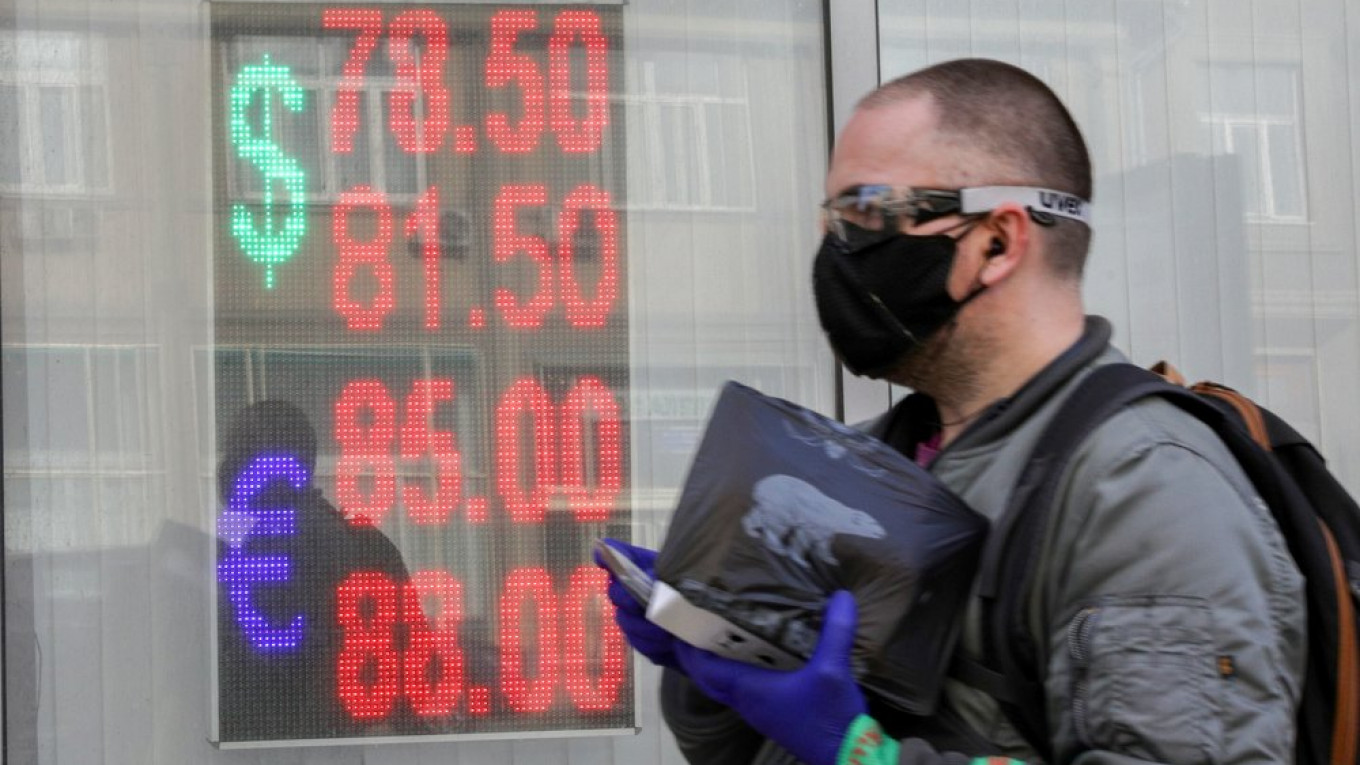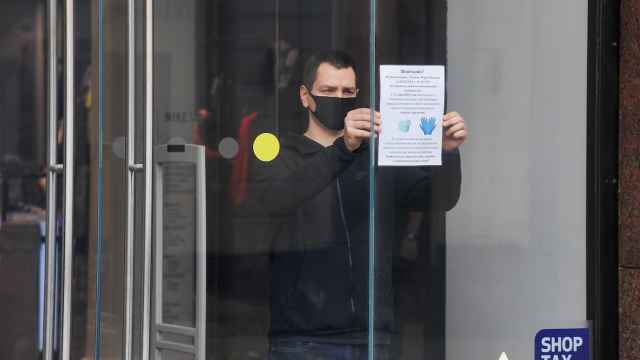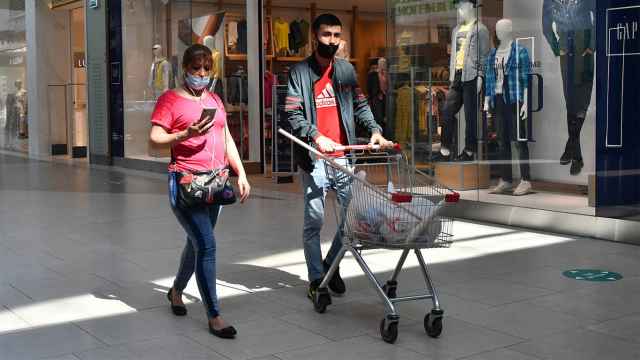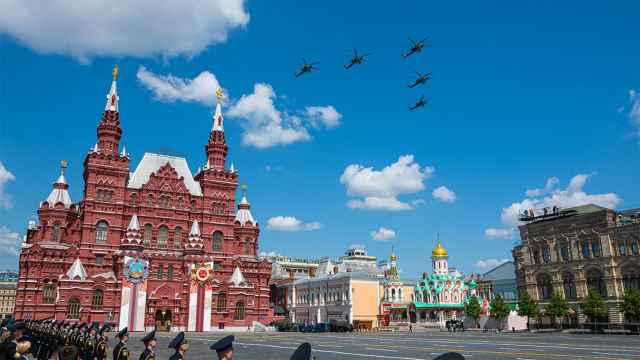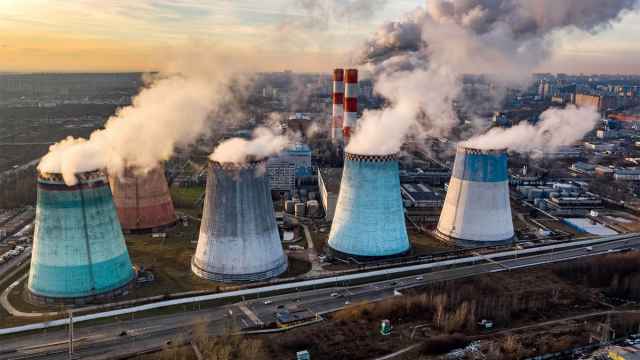Since the coronavirus outbreak was officially declared a pandemic, and as Russia walked away from the OPEC+ deal, sending energy and financial markets into a tailspin, two questions have dominated analysis about the state of the Russian — and global — economy. How well prepared are we, and how bad will the damage be?
As far as Russia goes, a tentative consensus has emerged on the country’s readiness for the onslaught that sees it as better shielded from a bout of global turmoil and low energy prices than it was five years ago, but far from invincible. Russia’s balance sheet is one of the world’s best, the pernicious influence of oil prices has been reduced and the economy is altogether more isolated. But consumers are struggling, living standards are low and Russia is still a petro-heavy economy, as the 27% crash in the value of the ruble this year has shown.
While this story of an economy more stable but less dynamic, slower moving but less exposed to a global crash comes through clearly from the macroeconomic data, the more pressing question of just how big the recession will be and what toll it will exert on Russia is much murkier.
Economists at Deutsche Bank highlighted the difficulties in assessing the current state of the world economy in a recent research note. “We cannot stress enough the degree of uncertainty surrounding our projections. These are truly unprecedented events with no adequate historical example,” they said.
Moscow-based investment bank Renaissance Capital told The Moscow Times it didn’t even want to call its latest projection for the Russian economy a “forecast”, as that would imply a level of certainty which the current environment prohibits. The investment bank’s latest “tentative scenario” for 2020 is a 0.8% fall in Russia’s GDP. “But that could only last a week,” said the group’s chief economist Charlie Robertson in a conference call Thursday.
“On growth, it’s a mug’s game to put out any proper numbers … Nobody’s got a clear idea of what’s happening today, let alone enough to make a forecast about what’s going to happen in three months,” he added.
For those brave enough to put a number on the likely damage, the trend suggests Russia will fall into a recession this year. Private modelling for the Kremlin warned a 10% annual contraction could materialize in a worst-case scenario. Other estimates range anywhere between stagnation — zero growth — and a 4% decline. But they are being revised downwards at an alarming rate.
As the economic picture deteriorates so rapidly, analysts are being forced to get more creative as they struggle to decipher what exactly is going on. Traditional economic data is out, and new real-time, experimental and unproven information is in.
“Standard macroeconomic data provides a backward-looking, lagging perspective on economic activity,” VTB Capital explained on Thursday. “While the size of such a lag might be tolerable in normal times, when the situation is changing as fast as it is now, the need for more timely gauges becomes apparent.”
In recent weeks, economists usually focused on tried-and-tested barometers of economic health, such as monthly inflation, official unemployment readings and industrial production have turned to interpreting traffic data, public transport use, energy consumption, footfall in shopping centres and internet search data for terms related to job seeking or unemployment in a bid to get a handle on the looming economic shock.
VTB Capital this week shared a pilot economic indicator which aims to get at real-time retail activity by tracking foot traffic in more than 200 Russian shopping centres using Google Maps’ “popular times” feature — the search giant’s widget that estimates how busy a specific place is compared to normal. However, with Russia about to go on a week-long emergency holiday and Moscow set to close all shops, bars and restaurants, tracking how busy bellwether establishments are in an attempt to understand consumers’ real-time behaviour in the age of the coronavirus is already a challenge.
Robertson says the idea of these real-term guides is “interesting,” but questioned how useful they can be in understanding the wider economy given the lack of historic data. For instance, without being able to see what happened to the number of internet searches for vacancies in previous periods of economic stress, it is tricky to assess the exact significance of a surge in online job hunters now.
Moscow’s Higher School of Economics has also tried to address the issue. Last week the independent university launched a new “daily economic stress index”, which combines 15 indicators including Russian stock market readings, exchange rate spreads and freight volumes. They chose indicators they could get old data for, and now present the daily readings as a real-time gauge for likelihood of a Russian recession. The index currently stands at 43 on a zero-to-100 scale. “A high probability of recession,” the economists explain. In each of the last three downturns — 2015, 2009 and 1998 — the index would’ve passed 80 at the point of maximum economic turmoil.
The struggle to get a more up-to-date reading on the Russian economy is more than just an academic challenge for economists and number crunchers. Poor data on how the economy is dealing with the hit, along with acknowledged shortcomings in authorities’ understanding of the extent of the virus itself, is potentially delaying a more meaningful response to the crisis from the Kremlin, economists suggest.
At a time when governments in Europe and the U.S. are unveiling huge stimulus programs, Russia’s package of measures, such as an increase in unemployment benefits and a boost in payments to families with young children, so far amounts to just 2% of GDP, financial group ING calculated Thursday.
“Keeping in mind past crisis episodes, the Russian authorities are being extra cautious,” said Elina Ribakova of the Institute of International Finance. “On the monetary front, it is already an achievement that they did not have to hike interest rates. On fiscal, indeed, the proposed package is very small and will likely need to be expanded.”
Economists say Putin, who has defined himself as a conservative manager of Russia’s public finances, could be playing for time, seeing how the coronavirus develops before signing up to a more expensive intervention.
With Moscow’s $125 billion sovereign wealth fund ready to be called upon if needed, Russia may not need to act as swiftly as larger, more developed economies.
“Russia has the buffers to address any post-slowdown issues such as a loss of employment, and bankruptcies in certain service industries and among small and medium-sized businesses,” Ribakova pointed out.
Chris Weafer of Macro Advisory said the government is still optimistic that its measures will limit the spread of the coronavirus, meaning it is stopping short of shutting down the country and executing an aggressive stimulus package.
“At the moment, the numbers seem to be supporting them, but the picture could change rapidly over the next couple of weeks,” he added.
A Message from The Moscow Times:
Dear readers,
We are facing unprecedented challenges. Russia's Prosecutor General's Office has designated The Moscow Times as an "undesirable" organization, criminalizing our work and putting our staff at risk of prosecution. This follows our earlier unjust labeling as a "foreign agent."
These actions are direct attempts to silence independent journalism in Russia. The authorities claim our work "discredits the decisions of the Russian leadership." We see things differently: we strive to provide accurate, unbiased reporting on Russia.
We, the journalists of The Moscow Times, refuse to be silenced. But to continue our work, we need your help.
Your support, no matter how small, makes a world of difference. If you can, please support us monthly starting from just $2. It's quick to set up, and every contribution makes a significant impact.
By supporting The Moscow Times, you're defending open, independent journalism in the face of repression. Thank you for standing with us.
Remind me later.



